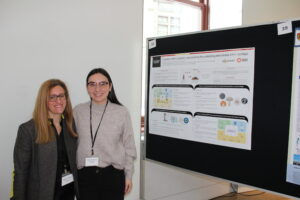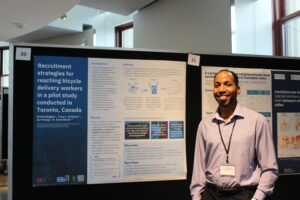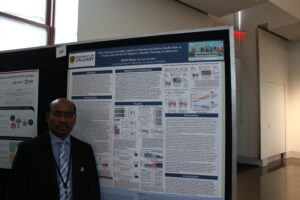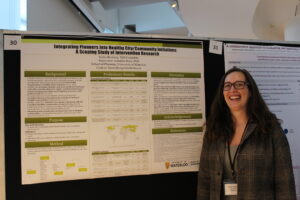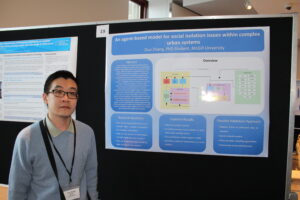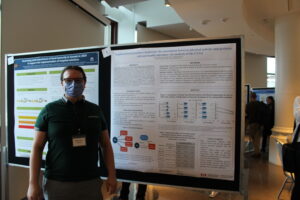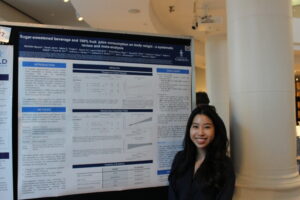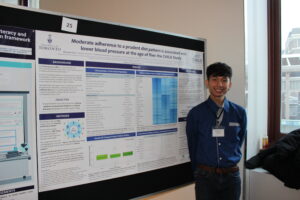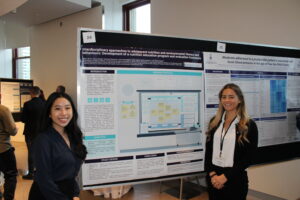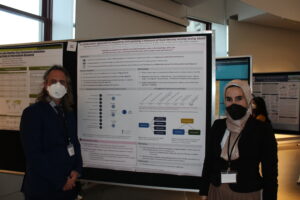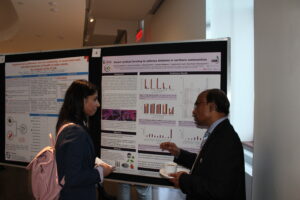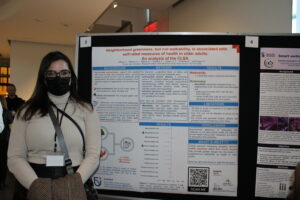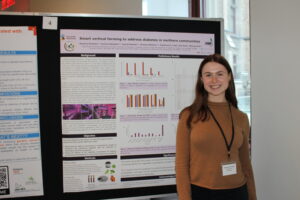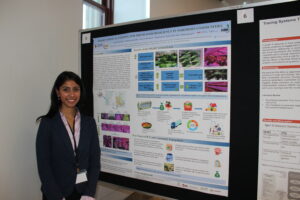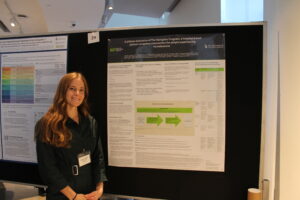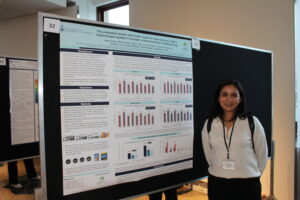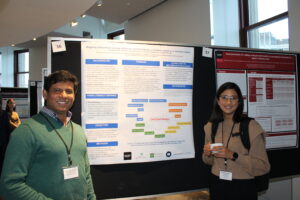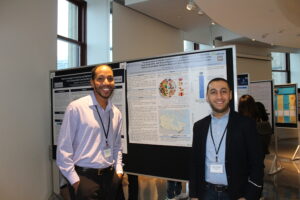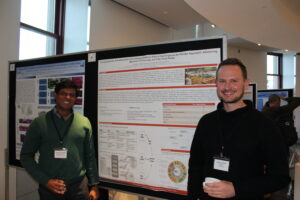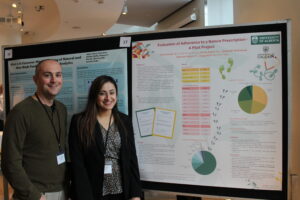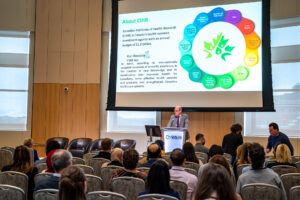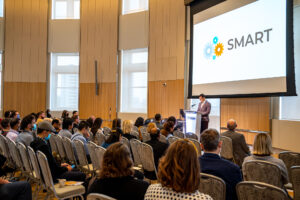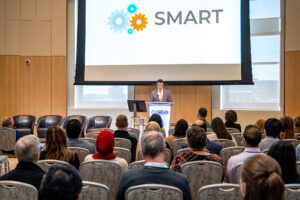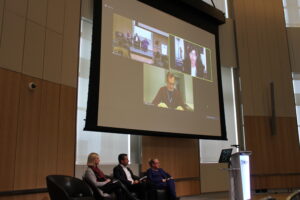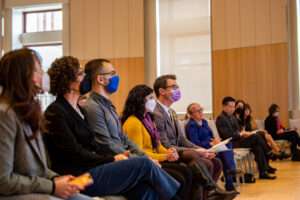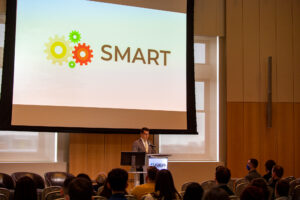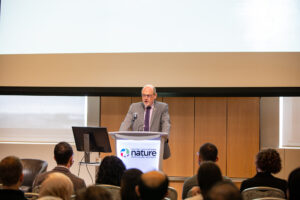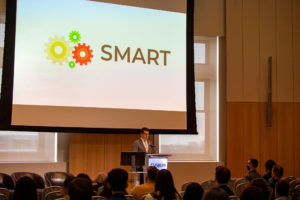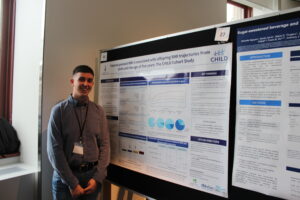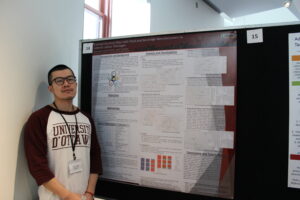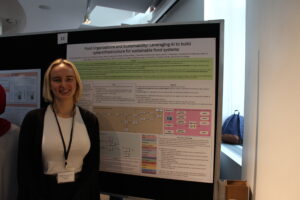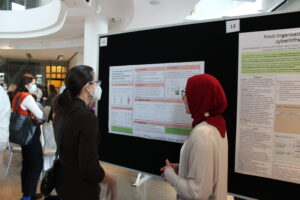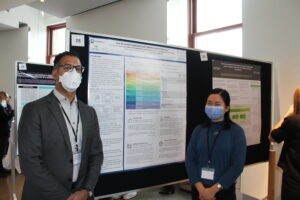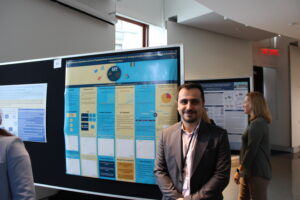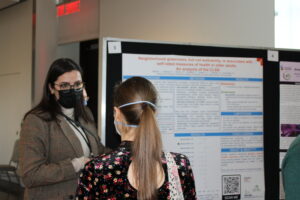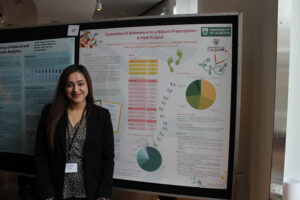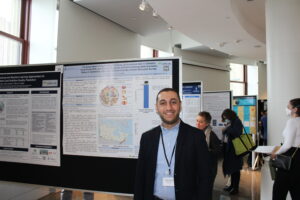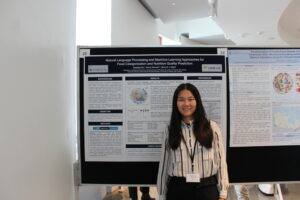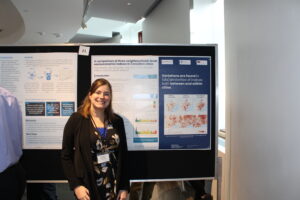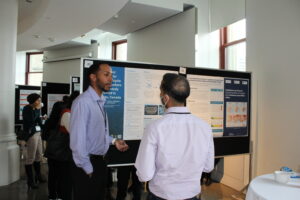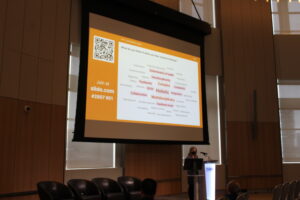
Annual Conference
SMART Training Platform’s Annual Conference
The SMART Training Platform’s annual conference is a space to transfer knowledge, facilitate networking and build a community of practice. Our objectives of the annual meeting include fostering an interdisciplinary and intersectoral community of practice among researchers, trainees, practitioners, and knowledge users and identifying emerging priorities, potential projects, and training opportunities.
The annual meeting will be alternating virtual and in-person delivery.
The Second Annual Healthy Cities Conference
Imagining Healthy and Smart Cities of the Future – Building Towards Systemic and High Dimensional Change, a New Framework
As cities around the world continue to grow, new ways of thinking and the implementation of innovative solutions are required to solve the many complex problems that are being identified. Attend this conference to learn more about today’s challenges and potential solutions for healthy cities, where we can all live, work and play.
About the conference:
This conference is hosted by the Implementing Smart Cities to Build Healthy Cities (SMART) Training Platform, funded by CIHR, NSERC and SSHRC. The programming was developed in collaboration with the Healthy Cities Implementation Science (HCIS) team grant recipients. SMART aims to equip the next generation of researchers to implement successful, scalable, and enduring solutions to healthy city challenges facing growing urban centres of all sizes in Canada and globally.
Conference session topics and posters will span many areas related to healthy cities, including implementation science, convergence-by-design, food and health, Indigenous issues and equity, aging and chronic disease, transportation and housing, an d training and policy. Join us November 1st to 3rd for our virtual event consisting of three afternoons! This event will be held in a eastern standard time zone.
The objectives of the annual conference included:
- To foster an interdisciplinary and intersectoral community of practice among researchers, trainees, practitioners and knowledge users interested in healthy cities
- To transfer of knowledge of current issues, research and potential solutions related to healthy cities.
- To identify emerging priorities for healthy cities and research questions and training opportunities
Conference session topics and posters will span many areas related to healthy cities, including implementation science, convergence-by-design, food and health, Indigenous issues, and equity, aging and chronic disease, transportation and housing, and training and policy.
This conference is hosted by the Implementing Smart Cities to Build Healthy Cities (SMART) Training Platform, funded by CIHR, NSERC and SSHRC. The programming was developed in collaboration with the Healthy Cities Implementation Science (HCIS) team grant recipients. SMART aims to equip the next generation of researchers to implement successful, scalable, and enduring solutions to healthy city challenges facing growing urban centres of all sizes in Canada and globally.
First Year Highlighted
The First Annual Healthy Cities Conference
November 2022, we hosted the First Annual Healthy Cities conference in Ottawa, Ontario. Focusing on the central place of food in cities, we discussed key topics such as the use of ‘big data’ to create smart solutions for urban environments, relevant challenges Indigenous communities face, and the many facets of the circular economy in cities of the future. Our goal was to expand the understanding of implementation science and explore how to build and support healthy cities through research excellence, capacity building and knowledge mobilization.
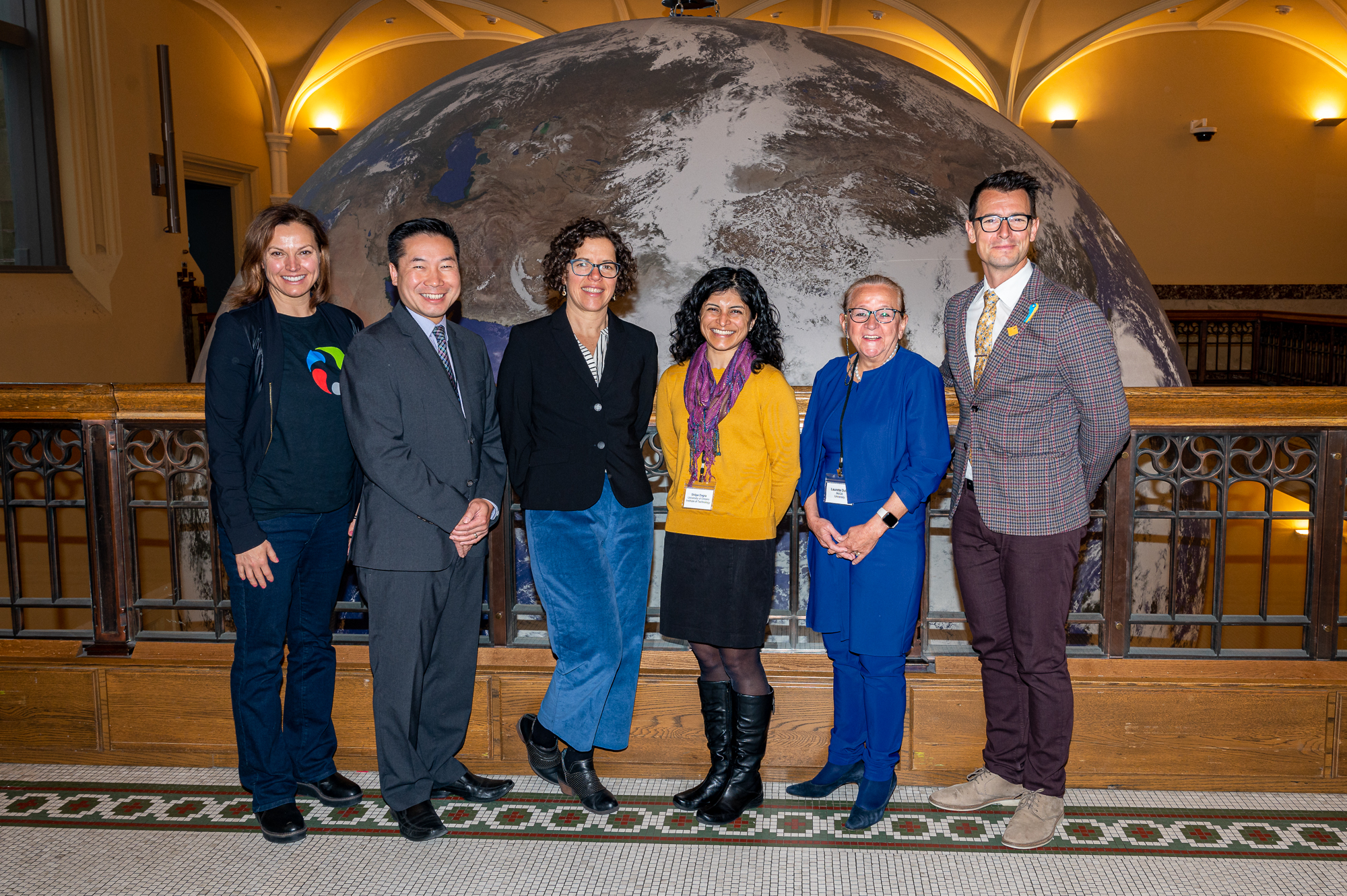
The program began with a welcome and announcement from the Healthy Cities Research Initiative. The Chief Scientific Officer Dr. Christian Baron and Parliamentary Secretary to the Minister of Health, Adam van Koeverden joined us to announce their research investment in healthier, more equitable communities.
We welcomed the six winning teams both in person and virtually to receive the live announcement of the Government of Canada’s investment of $27 million to support six research teams that are studying how to make Canada’s cities healthier, more equitable places to live.
Read the official announcement from the Canadian Institute of Health Research here!
We had the pleasure of welcoming speakers and panellists from across the world as we broke down silos to explore the many facets of healthy cities. Each session was anchored by a keynote speaker with a panel of stakeholders from research, academia, government sector, non-for-profit, and industry to round out the conversation.
Sessions One: Bringing the Convergence-by-Design Approach to Life: Food as Entry Point for Digital-Powered Convergence Innovation and System Transformation in Science, Economy, and Society




Building upon the most advanced health implementation sciences, the SMART training platform set the next frontier with its unique convergence-by-design approach to science, technology, and innovation. The approach is person-centric, digital-powered, and takes a whole-of-society perspective. It positions the person at the centre of the systems of systems that create contexts at community, city, provincial, national and global level. It is a meta-innovation – an innovation in the way we innovate, embedding the research in real-time into real-world individual and collaborative solutions to transform science, economy and society. A short briefing will take food as entry point to discuss challenges and possibilities in the broader context of all dimensions of a person’s thriving and healthy life and the digital-powered multi-sector engagement that only can sustain it for all.
- Nancy Tout, Executive Director and Chief Executive Officer, Global Institute for Food Security
- Andrea Reimer, Professor of Practice at UBC’s School of Public Policy and Global Affairs
- Rupen Seoni, Chief Revenue Officer at Environics Analytics
- Eugenio Longo, Sustainability Director at Tata Consultancy Services, Europe
Session Two: Indigenous Health and Healthy Communities as Entry Point for Societal-Scale Innovation and System Transformation
Dietary choices and food security are the major stumbling blocks in achieving a healthy community, leading to negative health issues in the Indigenous communities. This session will be solution-based approaches on food security by discussing the land based Indigenous food systems, and employment of high technology in agriculture for SMART production in the Indigenous communities. Further SMART food distribution and SMART health and economic monitoring require system approaches, thus how co-creating knowledge for system changes in the indigenous communities will be brought by panels.
- Glen Ross, Executive Director Opaskwayak Cree Nation Health Authority, Opaskwayak Cree Nation Health Authority
- Kyle Bobiwash, Researcher in Residence with the Office of the Chief Science Advisor, University of Manitoba
- Sandra Schillo, Associate Professor, Telfer School of Management at University of Ottawa
- Spencer Moore, Professor and Chair of the Health and Society Group, Wageningen University and Research




Session Three: Integrative Big Data, AI and Computing Architecture for Healthy City as Entry Point for a Healthy World: Building an Ecosystem of Digital Twins to Accelerate Real-World Solutions




For many decades now, digital twins for physical objects have enabled the design, test, manufacture and use of their digital version to understand their use in context, the forces at play, the failure risks, etc. This session will propose that a similar approach applied in a modular and distributed manner to society as a whole can inform Healthy City initiatives worldwide. Taking Montreal as entry point, the session will report on the early development of the digital ecosystem “SynthEco” which utilizes statistically representative synthetic populations derived from Census data for a given geospatial granularity as the anchor to create a complex digital ecosystem to analyse individual human behaviour within their environment and, in turn, the decision making and practice of profession, organization, and institution that define this environment. Discussion will bear on challenges and possibilities in accelerating real-world solution to many complex challenges facing traditional and modern society worldwide.
- Frances Westley, J.W. McConnell Chair in Social Innovation
- Sangeeta Lalli, Public Policy Director, TELUS Agriculture
- Shawn Brown, Senior Director HPE Cray Programming Environment Hewlett-Packard Enterprise
Session Four: Circular Economy and Healthy Cities
This session will highlight the role of the circular economy in support of healthy and smart cities initiatives. The circular economy is more than just about recycling materials but a different way to view how we take, make and use the world around us. The Our Food Future Initiative in the City of Guelph and County seeks to enhance the ways in which nutritious food is accessed, economic opportunities to stimulate business growth by incorporating circular economy principles in business practices and to reduce food waste from farm to plate. Additional facets of healthy cities ranging from housing, social and business perspectives will be shared by panellists.




The Future of Research
The abstract presentations discussed solutions and interventions addressing the complex needs, challenges, and opportunities of healthy cities that encompasses many themes such as smart cities, big data, circularity of food, equity, indigenous, housing, transportation, urban planning, geography, aging, policy, movement, public health, gender, and health. For a detailed list of the presented research, please see below.
We welcomed SMART Trainees from institutions from across Canada to present their research in the diverse sectors of healthy cities.
